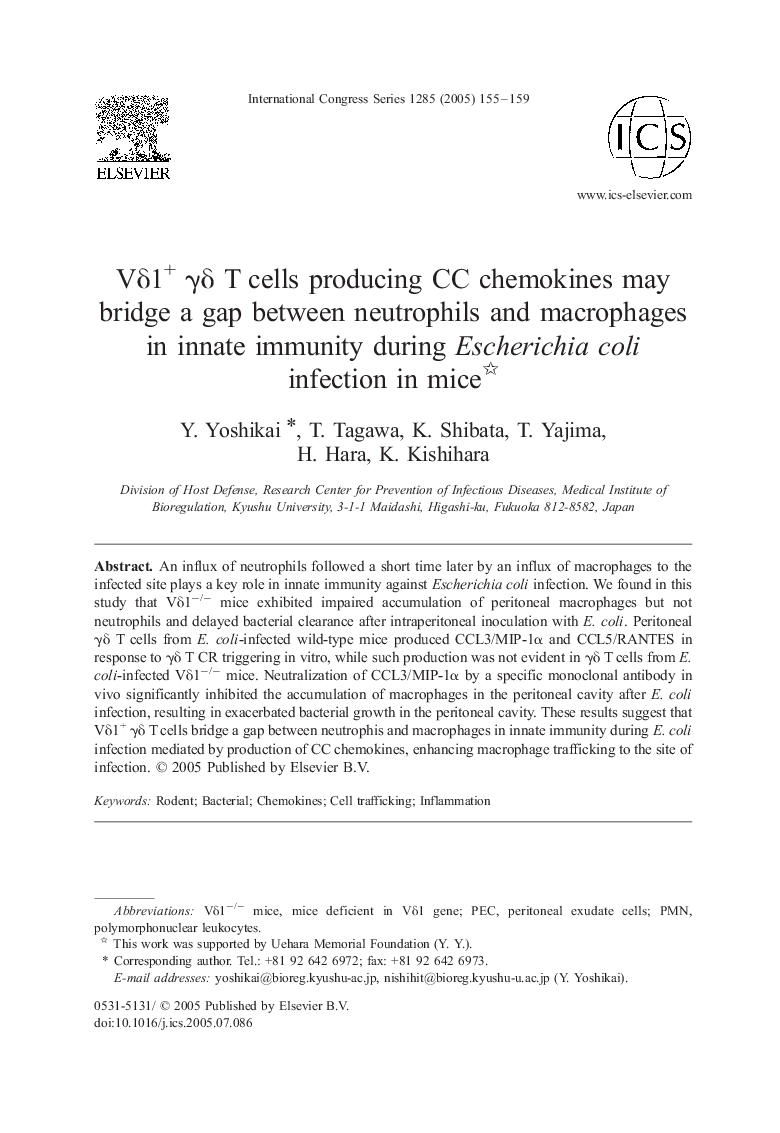| Article ID | Journal | Published Year | Pages | File Type |
|---|---|---|---|---|
| 9021274 | International Congress Series | 2005 | 5 Pages |
Abstract
An influx of neutrophils followed a short time later by an influx of macrophages to the infected site plays a key role in innate immunity against Escherichia coli infection. We found in this study that Vδ1â/â mice exhibited impaired accumulation of peritoneal macrophages but not neutrophils and delayed bacterial clearance after intraperitoneal inoculation with E. coli. Peritoneal γδ T cells from E. coli-infected wild-type mice produced CCL3/MIP-1α and CCL5/RANTES in response to γδ T CR triggering in vitro, while such production was not evident in γδ T cells from E. coli-infected Vδ1â/â mice. Neutralization of CCL3/MIP-1α by a specific monoclonal antibody in vivo significantly inhibited the accumulation of macrophages in the peritoneal cavity after E. coli infection, resulting in exacerbated bacterial growth in the peritoneal cavity. These results suggest that Vδ1+ γδ T cells bridge a gap between neutrophis and macrophages in innate immunity during E. coli infection mediated by production of CC chemokines, enhancing macrophage trafficking to the site of infection.
Keywords
Related Topics
Life Sciences
Biochemistry, Genetics and Molecular Biology
Molecular Biology
Authors
Y. Yoshikai, T. Tagawa, K. Shibata, T. Yajima, H. Hara, K. Kishihara,
